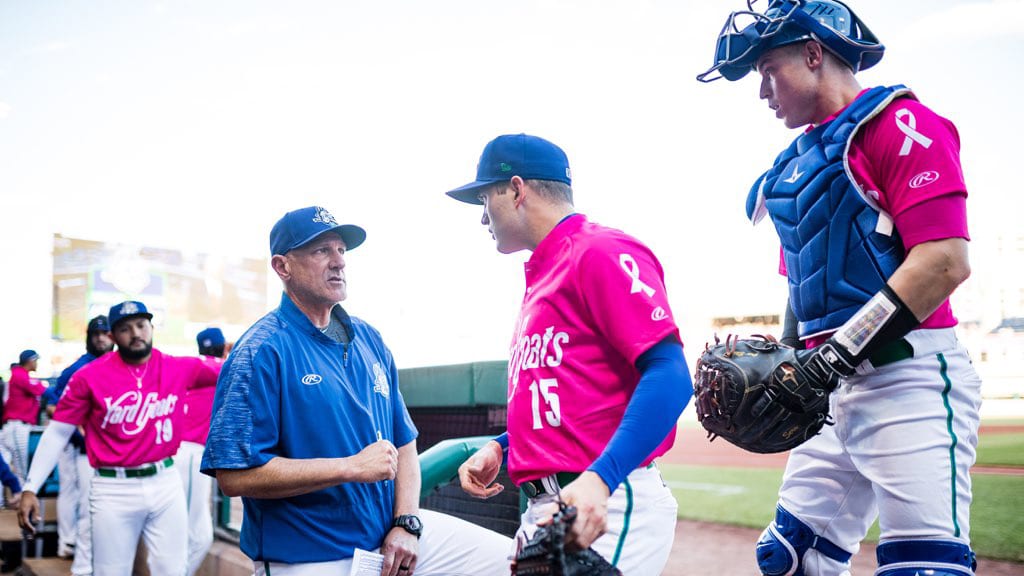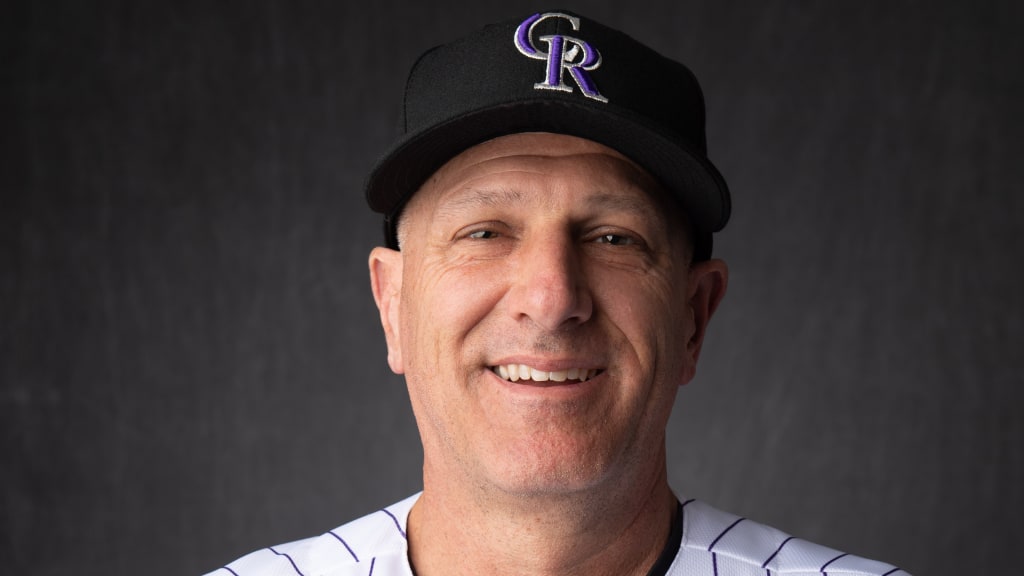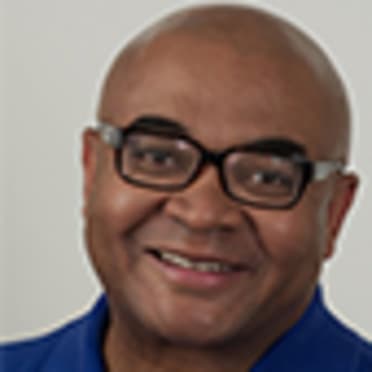
DENVER -- Long before Steve Merriman, the Rockies new Minor League pitching co-coordinator, became a leading voice in modern training methodologies and data-enhanced coaching, he was a student who learned from a student.
As pitching coach at the University of Michigan in 2002, Merriman’s eyes were opened to the future by Jonathan Moss, who would throw only one inning for the Wolverines that year.
“He was going to be a biomechanical engineer,” Merriman said of Moss. “I got to play around in the biomechanic world. At that time, it was all stick figure stuff.
“He would come running back to me at practice and say, ‘We put all this stuff that you're having us do on this biomechanic thing.’ I said, 'Hey, listen, they just let me coach at Michigan. I'm not smart enough to go to school there. So you've got to slow the words down for me.’”
Fast-forward to the present, and Colorado’s pitchers hope this season they will move rapidly forward -- with the knowledge Merriman has gained.
Merriman joined the Rockies last season as Double-A Hartford’s pitching coach. At the end of the year, he joined the big league club to learn about the pitchers and participate in data studies. Colorado’s hurlers had seen their staff ERA go from 4.51 in 2017 and 4.33 in ’18 -- both postseason years -- to 5.46 (last in the National League) in ’19. They needed answers.
In November, the Rockies promoted Darryl Scott from co-coordinator to Major League bullpen coach to replace Darren Holmes, and seeking to tap into Merriman’s knowledge, they gave him Scott’s old job.

Merriman had worked with the Cubs in 2018 at their high-tech pitching lab in Mesa, Ariz. So he collaborated with director of pitching operations Mark Wiley and Minor and Major League coaches to build a similar setup at Salt River Fields at Talking Stick, the Rockies’ Spring Training ballpark, in Scottsdale, Ariz. It was revealed last month during the team’s pitching development program.
Right-handed pitcher Jon Gray, who spent a week of his offseason program in Scottsdale, found the lab to be a revelation. The Rapsodo data system popped information Gray could study on a monitor behind the mound, even in between pitches. Flaws that could have lingered through bullpens, or days or months of lost games were revealed in moments.
Even more, Gray found a sounding board in Merriman.
“If I have questions, he can relay the information in a way I understand it,” Gray said. “He’s another guy who’s on the same page as you.”
Lefty Kyle Freeland, who hopes analyzing his spin could help him rebound from a rough 2019 season, said Scott, his longtime Minor League coach, and Merriman have been helpful for him because they avoid a “cookie-cutter kind of vision.”
Merriman’s resume includes the typical myriad of locations and baseball jobs, including as an associate scout with the Rockies from 2002-04. But look deeper and you’ll see Merriman always rode the high-tech coaching wave.
While with the Mets from 2004-06, he visited orthopedic surgeon Dr. James Andrews’ biomechanic pitching lab in Birmingham, Ala., and the Texas Pitching Ranch -- a specialized program that has operated in Montgomery, Texas since 2003.
While working in Class A with the Royals in 2014, he collaborated with current Rockies pitching coach Steve Foster while developing information for a Kansas City team that won the World Series in 2015.
“He’s a science guy and a baseball guy,” Foster said. “A Christian man with a wonderful family. I trust him and value his opinion greatly. We worked well together in Kansas City.”
At one point, Merriman interviewed for a job with the Dodgers (Giants manager Gabe Kapler was the player development director), and though he wasn’t hired, he saw advancements that the club was making. So Merriman increased his knowledge base and exposure to pitching lab science with the Cubs.
“One of the many reasons we wanted to add Steve to our organization is because he has a pitching curiosity about him and he’s got a desire to be a lifelong learner,” said Zach Wilson, the Rockies’ assistant general manager of player development.
As a former college catcher, Merriman always valued how the pitcher-catcher relationship provides the learning opportunities he loves.
“I thought it would be easiest if I didn't stand in front of that player and say, ‘This is how I did it,’” he said. “I can't say that. I always let the pitchers know that it is a relationship, a conversation.”
